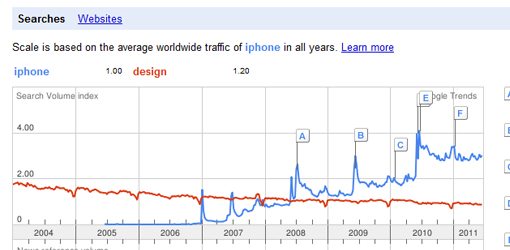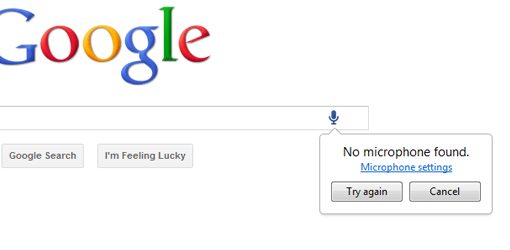Webmaster Quick Tips: Optimizing Your Website for Search Results
The process to set up and launch a full scale website requires a lot of hard work and dedication. It’s not an easy task to build up new templates and reform them every so often. However, as webmasters it is our responsibility to market and promote each of our launches and give each website a proper branding experience.
Today we’ll go over some extremely helpful search optimization techniques which have been passed down from web designers across the globe.
It’s Easier Than You Think
When it comes to optimization for search engines many web developers are left clueless. The techniques needed to rank higher in Google aren’t exactly rocket science and certainly don’t require a degree to understand. Google is just a computer system like anything else, and their web crawlers follow some very specific rules and regulations. Once you begin to understand how these work and put everything together you’ll be optimizing your websites for massive loads of unique visitors.

I do understand the difficulties of getting started in the field. Webmasters often just want to keep up with maintenance and template details, why should you go back and edit your HTML code for search engines? Well there are a lot of good reasons, some of which I’ve shared below. But ultimately your reasoning should be based upon your goals as a webmaster and where you look to bring your websites in the coming months.
Why are Search Engines Important?
The purpose of any website launch is to bring in boatloads of traffic. Website visitors are the lifeblood which keeps any Internet community floating. Once you have given up on a website the community will begin to dry out and members will slowly die off. If you don’t have links elsewhere online then nobody will find your website, either.
This is where the beauty of search engines come into play. When you code your web pages consider the keywords and terminology used in your headings and tags. These are the links which Google and others (Yahoo!, Bing, DuckGoGo) will use to determine your page content. Thus if you aren’t able to update your site in a while it’s possible to still gain some new visitors through search queries.

There are a few different types of keyword searches which you could rank for. One of the largest markets is for longtail keywords in your page title. This technique is a way to describe the searches which users plug into Google and how content is ranked. For example if your title contains the terms “how to design a PSD mockup” chances are good that your exact article will rank #1 in Google for that longterm keyword search.
After discussing these longterm keyword searches we should also cover short-term keywords. It’s difficult to target shorter keywords since there are so many other websites on the Internet. But consider some of the possible short keyword searches just from the example above. These may include “psd mockup” or “design psd mockup” or “how to design a mockup”. All of these would yield plenty of results and if your article features relevant content chances are high you’ll be sitting on the first page.
Building Set Keywords
It’s not very difficult figuring out a set of keywords which will become popular. Google Trends is an amazing resource for marketers and webmasters looking to pickup on the hottest queries. Google will update this list daily for your convenience. You may also search out 2 or 3 different queries and compare the graphs side-by-side for a better perspective.

Once you have a great idea and set of keywords, how do you go about implementing them? Well you want to ease the different keywords into your article headlines and pages. But this can’t be done all at once as Google would get quite suspicious. If you’re running a blog with updated content consider limiting yourself to 1-3 articles daily. This gives Google enough time to crawl your page without assuming your content is duplicated from elsewhere. Of course, you could also write much less than this.
And on that note, ensure all your writing is original. I can’t stress this enough as Google penalizes websites which blatantly copy articles word-for-word and use them as their own. Once your domain is blacklisted Google will find it hard pressed to include your website in any related searches (although this could be appealed, why not skip it entirely?).
Convert Rich Media to Lower-Density
Google is one powerful search engine. The company runs an Internet browser-based e-mail client, word processing documents, IM chat, and recently speak-to-search functionality. But they do not have the technology yet to automatically scan and categorize images on the web. This has been a difficult task to accomplish with any rich media, also including music and video files.

But there are human readable tags which you can implement to help Google along the way. For images you’ll want to always include alternate text and preferably a title tag. The two are not interchangeable and do present differently on different browsers. Alt text is very important as it describes the image in place of loading the image. This works in browsers which remove all images and styles. Google bots are smart enough to mark this text and attach keywords to your images for queries. Then users can find your content through services like Google Image search.
YouTube videos are probably the best way to get video content noticed and indexed. You can embed your own .avi or movie files directly from your website, the option is available. But do note that streaming direct video content to possibly thousands of users daily will take up a lot of bandwidth. And with services like Vimeo, Google Video, and Metacafe it has never been easier to host your video content elsewhere with tags and category information. You’ll get a lot more views, a lot more interest, and even mid-grade video upload apps will offer you embed code for video content.
Build your Domain Credibility
It’s possible that you would implement all of these tactics into your website and still not see any changes in Google ranks. This happens frequently with more websites than you’d realize. Google tends to limit search results based on the quality of your domain name. This characteristics would include domain age, amount of quality backlinks, current PageRank level, among a few other factors.
It is possible for a brand new website to rank into the first page in search results. But keep in mind you’ll want to perform some heavy marketing to bring in Google’s attention. Before even launching the website live you may consider creating profiles on the most popular social networks. These include Twitter, Tumblr, Facebook, Digg, and StumbleUpon. Each of them offers you to add a personal URL which provides a backlink to your website. Additionally if you are using Google Accounts you can add URLs to your Google Profile which adds a lot of credibility to your links.

After you have done all this you may not feel as though things are done. That’s because the marketing never stops and there’s always more to accomplish! Try searching around and create a list of blogs you really enjoy to leave comments on their articles. Blog commenting is one of the best solutions for building backlinks and garnering a bit of traffic, too.
If you pick some heavily trafficked blog posts and manage to land one of the top comments you’ll certainly see a small influx in visitors. But Google truly doesn’t care about the total number of clicks you’re getting on these links. Their web bots just want to see your domain linked from other high-quality websites. Blogs are the easiest to work with. You may also join web forums or discussion boards where you can add your link into the signature area in posts. These add up over time and if you can get a profile of 100+ posts you will notice some major differences in Google search results.
Conclusion
To get your website noticed in today’s modern Internet society requires a strong marketing plan and repetitive labor. The process of building your networks and gaining trust does take a fairly long time. It most certainly won’t be accomplished overnight. But if you spend a little time each day increasing your backlinks count and blog posts Google is sure to notice.
And as you target rich keywords to be found in Google searches your pages are bound to turn up. The longer you stick with a marketing plan the higher level of results you will notice. These tips are lightly touching upon search engines, namely Google searches and query results. If you have similar tips or suggestions for webmasters please offer them in the discussions area below.